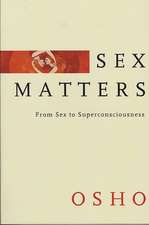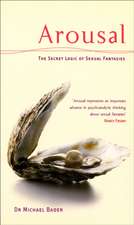The Social Construction of Lesbianism: Inquiries in Social Construction series
Autor Celia Kitzingeren Limba Engleză Paperback – 11 noi 1987
This volume was awarded a 1989 Distinguished Publication Award by the Association for Women in Psychology.
| Toate formatele și edițiile | Preț | Express |
|---|---|---|
| Paperback (1) | 488.94 lei 43-57 zile | |
| SAGE Publications – 11 noi 1987 | 488.94 lei 43-57 zile | |
| Hardback (1) | 1185.59 lei 43-57 zile | |
| SAGE Publications – 22 noi 1987 | 1185.59 lei 43-57 zile |
Preț: 488.94 lei
Preț vechi: 575.22 lei
-15% Nou
Puncte Express: 733
Preț estimativ în valută:
93.56€ • 97.94$ • 77.41£
93.56€ • 97.94$ • 77.41£
Carte tipărită la comandă
Livrare economică 07-21 aprilie
Preluare comenzi: 021 569.72.76
Specificații
ISBN-13: 9780803981171
ISBN-10: 0803981171
Pagini: 240
Dimensiuni: 138 x 216 x 13 mm
Greutate: 0.29 kg
Ediția:1
Editura: SAGE Publications
Colecția Sage Publications Ltd
Seria Inquiries in Social Construction series
Locul publicării:London, United Kingdom
ISBN-10: 0803981171
Pagini: 240
Dimensiuni: 138 x 216 x 13 mm
Greutate: 0.29 kg
Ediția:1
Editura: SAGE Publications
Colecția Sage Publications Ltd
Seria Inquiries in Social Construction series
Locul publicării:London, United Kingdom
Recenzii
This volume was awarded a 1989 Distinguished Publication Award by the Association for Women in Psychology.`A "highly recommended" book. It is well written, with that rare blend of vitality and erudition which makes it accessible to a wide audience... one could not ask for a clearer demonstration of the interpenetration of `science' and `politics' ' - The Psychologist
`A scholarly and empirically substantial study which will make an important contribution to existing debates within social construction theory' - The Times Higher Education Supplement
`A witty expos[ac]e of the absurdities in so-called value free research, done with panache and perception. A good blend of scholarship and sense, well-written and so accessible... a paradigm for sound research in social science' - Dale Spender
`Contains many lessons for all those involved in research. It is a closely argued, highly readable book. Kitzinger presents a multi-layered argument in a clear and intelligible manner. The clarity of her argument is aided by a well structured book... Kitzinger writes that the success of the social constructionist approach depends primarily on the "capacity to invite, compel, stimulate or delight the audience". In this book, Kitzinger achieves all of these aims admirably' - British Educational Research Journal
`Required reading for people interested in homosexuality, the relation of identity to ideology, the politics of science, and feminist theory' - Ethics
`Witty and poignant... Kitzinger's arguments are very convincing... challenging and absorbing... (she) makes an excellent job of presenting the pros and cons of both liberal humanist approaches and radical feminist approaches. The book is so dense with arguments and counter-arguments, I cannot possibly do justice to it... it is only books like this that make us rethink our whole approach to such important issues... a book that brings into question many of the beliefs that researchers take for granted. It will have you thinking about these issues long after the book has been put down, and discussing it with your friends' - British Journal of Guidance and Counselling
`A brilliant book!... an important contribution to the literature on lesbianism, and an equally important lesson to all those who take pride in their liberal humanism and in their social science' - Barbara Katz Rothman, City University of New York
`This combined analysis of the political roles of research together with a thoughtful research contribution adds to our understanding of the realpolitik of science. Kitzinger's goal is not to denounce science, but to deconstruct it, to show that there are permanent contradictions and tensions in doing research if what you are interested in is social change. In the final analysis, she is telling us, science glorifies science and keeps scientists employed... the book has an exceptionally comprehensive bibliography which will introduce the novice to the sociology of science field. I do commend this interesting book highly' - Archives of Sexual Behavior
`A much needed challenge to the offensive wash of liberal humanism that threatens to drown us in benign ignorance and limited acceptance' - Time Out
`This is an extremely important debate for feminism' - Spare Rib
`A lively and intellectually engaging work... a significant contribution to the literature of social constructionism... an admirable analysis' - Operant Subjectivity
`A powerful description of the subtle ways psychologists shape our ideas of what lesbians should be. Celia has taken a wonderfully critical look at her own profession and at Western scientific conventions. Hers is one of the best feminist attacks I've read on how social science works against the interests of heterosexual women and lesbians... Celia's analysis of lesbian descriptions of their identity is fascinating... her book has a strong radical-feminist analysis (which) sharpened my thinking about my community. It showed me the many ways in which radical ideas about lesbianism can be undermined or gently turned in another direction' - Broadsheet
`A scholarly and empirically substantial study which will make an important contribution to existing debates within social construction theory' - The Times Higher Education Supplement
`A witty expos[ac]e of the absurdities in so-called value free research, done with panache and perception. A good blend of scholarship and sense, well-written and so accessible... a paradigm for sound research in social science' - Dale Spender
`Contains many lessons for all those involved in research. It is a closely argued, highly readable book. Kitzinger presents a multi-layered argument in a clear and intelligible manner. The clarity of her argument is aided by a well structured book... Kitzinger writes that the success of the social constructionist approach depends primarily on the "capacity to invite, compel, stimulate or delight the audience". In this book, Kitzinger achieves all of these aims admirably' - British Educational Research Journal
`Required reading for people interested in homosexuality, the relation of identity to ideology, the politics of science, and feminist theory' - Ethics
`Witty and poignant... Kitzinger's arguments are very convincing... challenging and absorbing... (she) makes an excellent job of presenting the pros and cons of both liberal humanist approaches and radical feminist approaches. The book is so dense with arguments and counter-arguments, I cannot possibly do justice to it... it is only books like this that make us rethink our whole approach to such important issues... a book that brings into question many of the beliefs that researchers take for granted. It will have you thinking about these issues long after the book has been put down, and discussing it with your friends' - British Journal of Guidance and Counselling
`A brilliant book!... an important contribution to the literature on lesbianism, and an equally important lesson to all those who take pride in their liberal humanism and in their social science' - Barbara Katz Rothman, City University of New York
`This combined analysis of the political roles of research together with a thoughtful research contribution adds to our understanding of the realpolitik of science. Kitzinger's goal is not to denounce science, but to deconstruct it, to show that there are permanent contradictions and tensions in doing research if what you are interested in is social change. In the final analysis, she is telling us, science glorifies science and keeps scientists employed... the book has an exceptionally comprehensive bibliography which will introduce the novice to the sociology of science field. I do commend this interesting book highly' - Archives of Sexual Behavior
`A much needed challenge to the offensive wash of liberal humanism that threatens to drown us in benign ignorance and limited acceptance' - Time Out
`This is an extremely important debate for feminism' - Spare Rib
`A lively and intellectually engaging work... a significant contribution to the literature of social constructionism... an admirable analysis' - Operant Subjectivity
`A powerful description of the subtle ways psychologists shape our ideas of what lesbians should be. Celia has taken a wonderfully critical look at her own profession and at Western scientific conventions. Hers is one of the best feminist attacks I've read on how social science works against the interests of heterosexual women and lesbians... Celia's analysis of lesbian descriptions of their identity is fascinating... her book has a strong radical-feminist analysis (which) sharpened my thinking about my community. It showed me the many ways in which radical ideas about lesbianism can be undermined or gently turned in another direction' - Broadsheet
Cuprins
Rhetoric in Research on Lesbianism and Male Homosexuality
Social Scientific Accounts
Eliciting and Assessing Lesbian Accounts
Lesbian Identities
Lesbian Politics
The Social Construction of Prejudice
The Future for Research on Lesbianism
Social Scientific Accounts
Eliciting and Assessing Lesbian Accounts
Lesbian Identities
Lesbian Politics
The Social Construction of Prejudice
The Future for Research on Lesbianism
Descriere
The old model of lesbianism as a pathological affliction has largely given way to a liberal social scientific one which presents it as an alternative lifestyle, a way of loving, a sexual preference, or a source of personal fulfillment.
This controversial book argues that the shift from 'pathological' to 'gay affirmative' research merely substitutes one depoliticized construction of lesbianism for another. The author contends that the gay affirmative model is fundamentally incompatible with radical feminist theory in which lesbianism is a political statement representing the bonding of women against male supremacy.
This volume was awarded a 1989 Distinguished Publication Award by the Association for Women in Psychology.
This controversial book argues that the shift from 'pathological' to 'gay affirmative' research merely substitutes one depoliticized construction of lesbianism for another. The author contends that the gay affirmative model is fundamentally incompatible with radical feminist theory in which lesbianism is a political statement representing the bonding of women against male supremacy.
This volume was awarded a 1989 Distinguished Publication Award by the Association for Women in Psychology.























